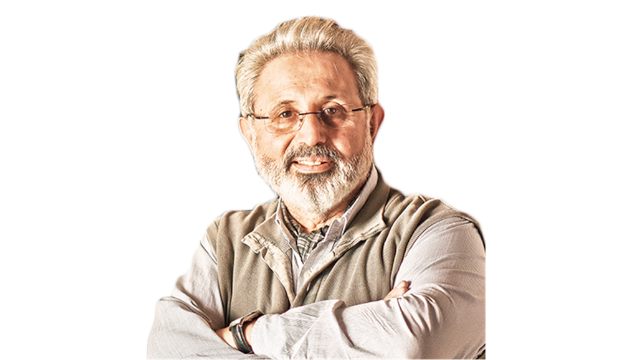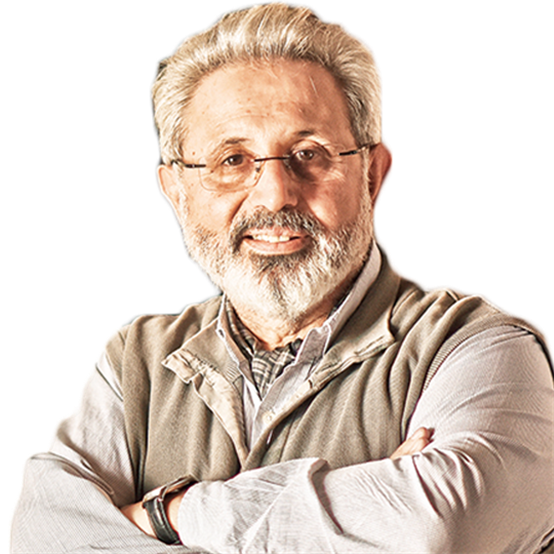Solidarity and soft power in the Muslim world: in conversation with historian Dawood Auleear, Jalal Ferdi

What do we know about the island of Mauritius? Have we ever heard about Jalal Ferdi? What is it that unites a small island on the southwest of the Indian Ocean and a Turkish educator who lived through the last periods of the Ottoman Empire and the first years of the Republican era?
Do you recall Ottam Empire’s Cemiyet-i Hayriye-i İslamiye (Benevolent Society of Islam), a branch of the Teşkilat-ı Mahsusa (Special Organization of the Ottoman Empire), which was founded by the Unionists? In one of my previous articles, I talked about the Journal of Islamic Review, which was first published in 1914 and aimed to form a collective conscious in the Islamic world. This magazine is what brings together the island of Mauritius and Jalal Ferdi (Gökçay). Jalal Ferdi introduces the island through the articles he writes for the journal. This may have no significance in a time when access to information is so easily accessed. However, back in those days, sharing and transferring such information served a superior purpose.
The Journal of Islamic Review was aiming to establish unity and geopolitics of Islam among Muslims. Thus, it had set itself the primary goal of sharing information about Muslims everywhere in the world with the Ottoman community. In addition to the Turkish-language Journal of Islamic Review, the Benevolent Society of Islam was also publishing the Cihan-ı İslam (Islamic World) magazine in Turkish, Arabic, Farsi, and Urdu.
Jalal Ferdi wrote three articles to introduce the island of Mauritius, inhabited by about 40,000 Muslims back then. Besides general information about the island, he also provided important information in his articles about the social, religious, and economic lies of the Muslims societies consisting of various groups.
Though the sufficiency of this information, which was obtained from Revue du Monde Musluman, is debatable, its intention was too sacred to argue. While Jalal Ferdi provides information on the social status of Muslims on the island, their societies, and even the newspapers they publish, he was surely not aiming to do what today’s digital encyclopedias do. The objective of the articles in question was to establish an information-based solidarity among Muslims – something we strongly require even today. The aim of the group publishing the journal was to connect Muslims and develop an opportunity for cooperation in those disastrous years. Jalal Ferdi’s articles were serving this purpose. The Journal of Islamic Review and its authors were pursuing a strategy that is still very much needed by the Muslim world a century on. Therefore, they were reporting on Mauritius in the African continent, which was not under Ottoman administration and remained under the rule of all Western colonialists for a certain period, and the Muslims living there.
Dawood Auleear, who follows my articles on our newspaper’s English website, contacted me through telephone and e-mail after reading my article on Jerusalem under the rule of the Ottomans, and conveyed his delight. In addition, he shared his valuable ideas with me about developing solidarity and the use of soft power in the Islamic world. Colonial era historian Dawood Auleear from Mauritius, who is the epitome of the dream Jalal Ferdi saw in the years during World War I, says in a part of his letter:
“I enjoy your articles in Yeni Safak: you have a mature Turkish and Muslim perspective of History and Geopolitics. Your piece Peaceful coexistence: how the Ottomans ruled Jerusalem enlightens the uninitiated reader on the treasure of the research findings done by Turkish scholars on which I pondered for quite a while to come up with an idea.
“History is memory and a nation; without memory it becomes a rudderless ship tossing aimlessly in the waves. History is believed to create a bond within people who share a common past. History is replete with the exploits of heroes with whom ordinary folks would like to identify themselves and to emulate.
“The Muslims form an Ummah which unfortunately has been indoctrinated into adepts of geographical and ethnic allegiance than what Islam stands for: a universal view and adherence. This is the result of exposure to alien History as subjects of colonial powers.”
Our reader, who made suggestions following this introduction about forming Islamic geopolitics, underlines that the infrastructure for this is found in Ottoman history and present-day Turkey. Of course, I am later going to discuss and share what I possibly can from his suggestions, for which I am thankful. However, I must say that it is obvious the world is going to be re-established after the Covid-19 pandemic. Our world, which is most likely going to withdraw and present a an ever more conflicting picture, is going to need new universal motivation. In contrast, the Muslim world has the historical potential to form a solidarity rather than withdraw. This must be supported with new strategies and rational policies.
Jalal Ferdi, who was a well-known principal of the Istanbul Boys’ High School, has groomed numerous students. His legacy is still vivid in people’s minds. However, does he have pupils who share his vision and that of the Benevolent Society of Islam – for which he wrote – and continue his mission?
What does it matter if there are none? Even if he is not witness to it, the vision of common history has yielded results even in Mauritius today.
I am sometimes asked why I write newspaper articles as an academic. I find it right to question those who write for newspapers while their profession is not journalism. Yet my response is ready. I am pretending to be a journalist. I am bringing together people like Mauritian Dawood Auleear and Celal Ferdi from Turkey, who have universal messages to give.
Advertisement








Comments you share on our site are a valuable resource for other users. Please be respectful of different opinions and other users. Avoid using rude, aggressive, derogatory, or discriminatory language.